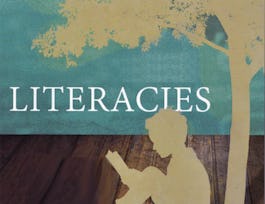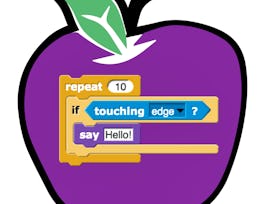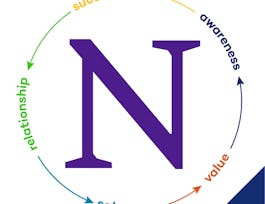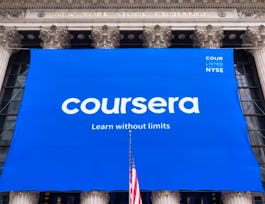This course opens with an exploration of the social context and aims of literacy teaching and learning. It goes on to describe a range of historical and contemporary approaches to literacy pedagogy, including didactic, authentic, functional, and critical approaches. The course takes has a 'Multiliteracies' perspective, which aims to expand the definition of literacy to encompass today's multimodal communications, and the diversity of literacies across different social and culltural contexts. A Multiliteracies approach also suggests a broad range of activity types—experiential, conceptual, analytical and critical.


Literacy Teaching and Learning: Aims, Approaches and Pedagogies
Taught in English
Some content may not be translated
13,708 already enrolled
(79 reviews)
Details to know

Add to your LinkedIn profile
1 quiz
See how employees at top companies are mastering in-demand skills


Earn a career certificate
Add this credential to your LinkedIn profile, resume, or CV
Share it on social media and in your performance review

There are 4 modules in this course
This module explores the notion of "literacies" in the plural, and in particular the concept of "Multiliteracies" coined by the presenters in this course as part of the New London Group. Literacy in the singular consists of the rigid rules of official standard languages, and is purely grounded in written text. Literacies in the plural, or multiliteracies, acknowledges that language use will vary greatly from one cultural and social context to another, and that contemporary communication is increasingly multimodal, where written text is juxtaposed with, or supplemented by, image, sound, space, object, gesture, and speech. The module goes on to explore the evolution of human communication, and the patterns of communication in today's work, public, and community settings.
What's included
8 videos15 readings1 quiz2 peer reviews3 discussion prompts1 plugin
In this module, we discuss the nature of pedagogy as the conscious design of learning activities. We introduce the idea of "knowledge processes" or activity types: experiential, conceptual, critical, and applied. In the case of literacies learning, experiential knowledge processes involve immersion in familiar and new texts. Conceptual knowledge processes include naming of the features of text, and developing theories of how these texts work to serve meaningful purposes. Analytical knowledge processes explore the contexts and purposes of texts. Applied knowledge processes engage learners in the creation of texts.
What's included
5 videos3 readings1 peer review1 discussion prompt
This module begins with an overview of the range of activity types that might be found in literacies pedagogy. These are illustrated with some examples of literacies learning modules. It goes on to examine two major models of literacy pedagogy: didactic and authentic.
What's included
7 videos2 readings2 peer reviews2 discussion prompts
Now we explore the remaining two of the four major traditions in literacy teaching and learning: functional and critical approaches to literacy. Our purpose in introducing these four major approaches has been to explore the strengths and weaknesses of each approach, as well as to advocate for the idea that literacy teaching and learning ideally involves a repertoire of different kinds of pedagogical moves or activity types.
What's included
6 videos2 readings2 peer reviews2 discussion prompts1 plugin
Instructors

Recommended if you're interested in Education

University of Illinois at Urbana-Champaign

University of California San Diego

Northwestern University

Coursera Project Network
Why people choose Coursera for their career




Learner reviews
Showing 3 of 79
79 reviews
- 5 stars
67.50%
- 4 stars
23.75%
- 3 stars
3.75%
- 2 stars
1.25%
- 1 star
3.75%

Open new doors with Coursera Plus
Unlimited access to 7,000+ world-class courses, hands-on projects, and job-ready certificate programs - all included in your subscription
Advance your career with an online degree
Earn a degree from world-class universities - 100% online
Join over 3,400 global companies that choose Coursera for Business
Upskill your employees to excel in the digital economy
Frequently asked questions
Access to lectures and assignments depends on your type of enrollment. If you take a course in audit mode, you will be able to see most course materials for free. To access graded assignments and to earn a Certificate, you will need to purchase the Certificate experience, during or after your audit. If you don't see the audit option:
The course may not offer an audit option. You can try a Free Trial instead, or apply for Financial Aid.
The course may offer 'Full Course, No Certificate' instead. This option lets you see all course materials, submit required assessments, and get a final grade. This also means that you will not be able to purchase a Certificate experience.
When you purchase a Certificate you get access to all course materials, including graded assignments. Upon completing the course, your electronic Certificate will be added to your Accomplishments page - from there, you can print your Certificate or add it to your LinkedIn profile. If you only want to read and view the course content, you can audit the course for free.
You will be eligible for a full refund until two weeks after your payment date, or (for courses that have just launched) until two weeks after the first session of the course begins, whichever is later. You cannot receive a refund once you’ve earned a Course Certificate, even if you complete the course within the two-week refund period. See our full refund policy.



